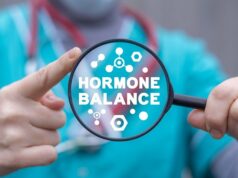In 2006, a 16-year old girl died of a heart attack from an overdose of a “miracle” diet herbal tea. Touted to be safe and all-natural, the tea promised to help her lose 10 to 30 pounds in just one week. Believing that the tea was truly safe, Rosalita increased her dosage in the hopes of improved results.
Sadly, Rosalita never woke up the next day. The strong laxative effects of the “all-natural” diet tea combined with a lack of food triggered a fatal heart attack as she slept.
Every year, Americans spend more than 33 billion dollars on weight loss products alone. Yet, in the year 2000, more than 30% of North American adults are obese, and numbers continue to rise. Miracle “diet” pills like Stimulife750, an appetite suppressant, offer instant weight loss in days.
While appetite suppression pills can help people lose weight for a short period of time, without a healthy diet and lifestyle, most people regain the weight they lose in just as much time.
Diet pill companies feed this misconception using too-good-to-be-true anecdotes and testimonials “This isn’t like dieting! I can eat my favourite foods and not feel the guilt and still loose weight and inches!”. Preying on our insecurities, the more malicious ones would sell little more than false cures, often with disastrous outcomes for unwary consumers.
Stigmata of Obesity
Obesity is an extremely stigmatized condition. We often view obese people as self-indulgent, lacking in discipline, lazy and unattractive. While people with other inherited diseases like Down Syndrome, Huntington’s disease or breast cancer also experience guilt and stigmatization, they are not blamed for their condition. We generally recognize that their condition is caused by genetic inheritance or other external factors beyond their control.
However, biobehavioral conditions – afflictions with both biological and behavioral factors – like alcohol abuse, addiction, depression and obesity are perceived to be under the voluntary control of the individual. We, as a society, believe such individual are personally responsible for their own conditions.
Obese people are more likely to experience victimization by peers, social isolation and serious emotional problems even among young children. Unfortunately, in a society obsessed with the perfect body, many obese people fall into the trap self-prejudice and negative self-image.
Because of our negative response to obesity, obese people tend to withdraw from social contact. This withdrawal only reinforces our negative response to obese people.
Mental and Emotional Impact on Obese Adolescents
Adolescents are especially sensitive to issues of self-image and peer rejection because they live in a time critical to forming concepts of social identity, self-esteem and personal worth. The social stigma of obesity disrupts social well-being causing profound unhappiness, stress and even mental illnesses.
Many obese children and teens suffer from depression because of their inability to meet peer expectations, culminating with poor body image, low self-esteem and low self-confidence. The emotional impact of obesity is much harder on young girls and women in general than it is for boys and men.
– David Schlundt, Ph.D. Professor of Psychology, Vanderbilt University
According to Robert Kushner, an M.D from the Pritzker School of Medicine at the University of Chicago, the tragic prevalence of miracle diet pills is due largely to the desperate need of the obese to lose weight – a need fueled by our condemnation.
Diet Pill Dangers
In the 1990s, the Food and Drug Administration (FDA) approved dexfenfluramine, known as Redux, an appetite suppressant. Market demand for this drug surged, almost overnight, in response to the extensive advertising campaigns by weight loss programs, obesity clinics and physicians hoping to cash in on the weight-loss craze.
By 1996, dexfenfluramine was linked to a rare but fatal heart condition, primary pulmonary hypertension. But considering the dangers of morbid obesity, the FDA felt the continued use of dexfenfluramine was justified.
It wasn’t until 1997, when the FDA discovered a serious cardio-valvular linked to dexfenfluramine with a prevalence of 30% among users, did the FDA finally asked for the voluntary withdrawal of dexfenfluramine from the market. This example demonstrates the lengths and amounts of risk obese people are willing to endure.
Currently, unlike prescription medicine for diseases like diabetes or hypertension, diet drugs are unregulated by any formal organization. Dr. Kushner laments that “out of desperation, the public turns to any and all quick-fix weight reduction promotions.”
Self-proclaimed weight-loss clinics attract the vulnerable with ads exclaiming medical breakthroughs with quick, safe and permanent results. Obese people of all ages fall easy prey to unscrupulous opportunists making these unsubstantiated claims.


















